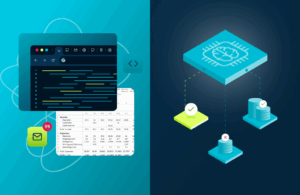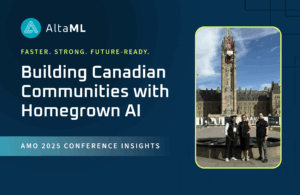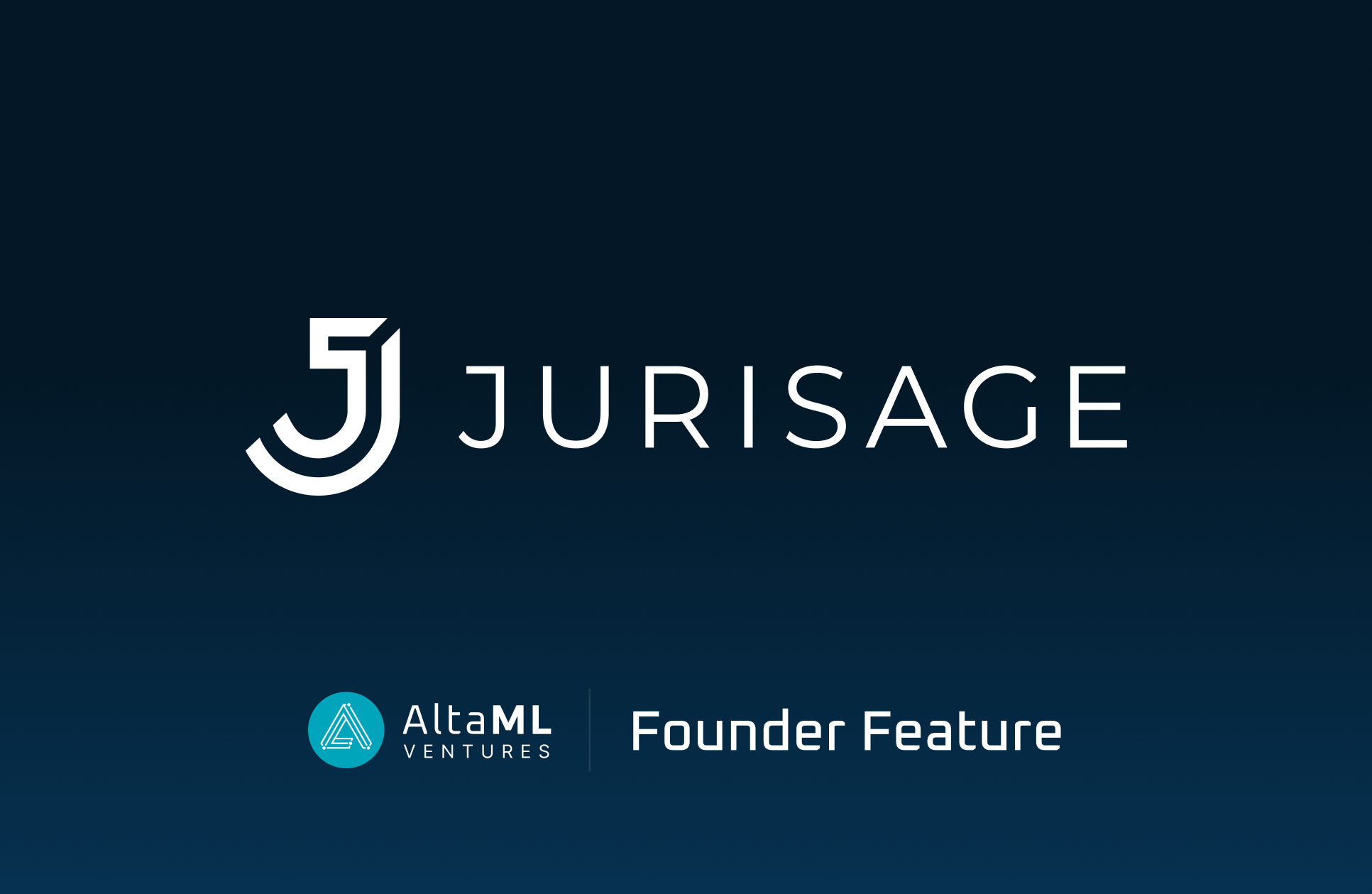-
What We Do
-
AI NavigatorGain clear direction and momentum as your chart your organization’s AI path.
-
AI FoundationsEstablish the essential skills, systems, and mindset to support sustainable AI adoption.
-
Agentic AI LabExplore, prototype, and refine agent-driven solutions to accelerate real-world impact.
-
GovLabAdvance government innovation with practice AI solutions tailored to unique public sector needs.
-
-
Featured
 The AI Agent Advantage: Understanding Your Digital Workforce
The AI Agent Advantage: Understanding Your Digital Workforce
-
Some Industries We Support
-
Energy and ResourcesDrive innovation and promote sustainability while gaining a competitive edge.
-
Financial ServicesBoost efficiency, reduce costs, and streamline processes.
-
Forestry and AgriculturePave the way for a productive, efficient, and greener future.
-
HealthRevolutionize care delivery, improve outcomes, and save lives.
-
ManufacturingStreamline production, eliminate costly downtime, and enhance quality control.
-
-
Featured
 Building Canadian Communities with Homegrown AI
Building Canadian Communities with Homegrown AI
-
Services
-
What We Do
-
AI NavigatorGain clear direction and momentum as your chart your organization’s AI path.
-
AI FoundationsEstablish the essential skills, systems, and mindset to support sustainable AI adoption.
-
Agentic AI LabExplore, prototype, and refine agent-driven solutions to accelerate real-world impact.
-
GovLabAdvance government innovation with practice AI solutions tailored to unique public sector needs.
-
-
-
Industries
-
Some Industries We Support
-
Energy and ResourcesDrive innovation and promote sustainability while gaining a competitive edge.
-
Financial ServicesBoost efficiency, reduce costs, and streamline processes.
-
Forestry and AgriculturePave the way for a productive, efficient, and greener future.
-
HealthRevolutionize care delivery, improve outcomes, and save lives.
-
ManufacturingStreamline production, eliminate costly downtime, and enhance quality control.
-
-
- Insights
-
About

Insights
Founder Spotlight: Aaron Wenner, CEO of Jurisage


Jurisage was launched within the AltaML Venture Studio in 2021, built on one of the world’s largest proprietary case law datasets with a focus on providing advanced artificial intelligence (AI) for legal research. In 2023, Jurisage merged with CiteRight, a leading litigation platform, to form Jurisage Group Inc. Under the guidance of CEO Aaron Wenner, the company continues to lead the way in legal tech innovation. The combined entity now integrates cutting-edge AI technology into litigation workflows offering lawyers essential tools for faster and more efficient client services through an AI-powered legal research and writing system.
Wenner, a lawyer, self-taught coder, entrepreneur, and graduate of Harvard University and McGill University’s Faculty of Law, is a respected figure and authority in the intersection of law and technology and intends to spearhead Juriasge’s entry into the U.S. market.
What’s the Elevator Pitch for Jurisage?
We help courtroom lawyers streamline their workflow by enabling them to quickly access and reuse existing materials, ultimately increasing efficiency and profitability. The challenge we’re addressing is that 50% of the work lawyers do has already been done by someone else in the firm. This knowledge is scattered across various locations within the firm—emails, document management systems—and it’s often easier for lawyers to rewrite rather than reuse existing material. This inefficiency creates millions of dollars in lost revenue opportunities.
We can solve that challenge by throwing large language models at a law firm’s internal content so that we can make that knowledge accessible. We do that by building tools that are integrated into where you’re already drafting and writing, like Microsoft Word and Outlook, so that we can give you the right words at the right time based on your firm’s prior knowledge. We really believe that legal knowledge is going to power the future of legal practice more so than just finding case law.
How Can an Organization Like Jurisage Impact the Legal Landscape?
It’s not just Jurisage that’s going to impact the legal landscape.
If you look at the promise of generative AI, it’s that you can do more writing in less time. And If you can write more in less time than you could on your own, or if you’re in an industry that sells its writing and sells its time, like legal does, you can bring on more customers, bring on more clients, and make more money. We found that what was important to our customers wasn’t a tool that would help them write something from scratch; they wanted a supplementary tool that would help them after the fact.
There’s going to be a push from the buy side of the industry, from the client side, especially sophisticated clients who have a good understanding of what products, in other words, what legal services cost, and we’ll know when a thing could be done by AI versus by a human. So what’s changing are the economics of the legal market, and in turn, the technology which is transforming that will then enable people to shift how they are thinking about how they sell their services or how they buy those services. There are tools that will disrupt, but there’s also fundamental market forces that will be doing that bigger than us, bigger than any single tool, and that are driving these efficiencies. What our job is to do is to help lawyers or help our customers navigate those waters and be even more productive and more profitable than ever before.
What Solutions Are Currently Offered by Jurisage?
For some background, CiteRight was the company that I founded, along with my co-founder, Ariel Nacson. I was a junior litigator at a very large law firm in downtown Toronto, doing a lot of work just before a submission deadline. That work included making sure the citations are done properly. Whenever you refer to a case, you have to indicate the name of the case and where you got that case from. And that information is encoded in a very specific way. So I created a problem and then solved the problem that I created by automating it. The thought was, what would it be like if I didn’t have to think about how to cite a case, if I could think about what a case actually said. That was the genesis of the product that’s now called CiteRight.
Cleaning up a citation, preparing a compilation of all the cases in PDF format, so that you or the judge can critically review what you said with what the law actually says. That fire drill happens because there’s no way to save cases earlier on in the process. Microsoft has shifted over to a new framework for how they want plugins to look so we rewrote CiteRight from the ground up. Every line of code in this platform is new, using Microsoft’s preferred technologies, allowing us to create a product that is better, faster, and easier to deliver to our customers. This new platform enables our team to deliver improvements and updates more quickly and efficiently, providing our customers with faster service.
How Has the Integration of Generative AI into Litigation Workflows Progressed?
Generative AI has a lot of capabilities that can do a lot of things. Not all those things are useful, and the things that are useful, are not necessarily generative AI based. It’s important to have deep conversations with customers about the problems they have, and then trying to find the right tool for the job. For us, the case summaries that we’re releasing were a great encapsulation of that. We found that what was important to our customers wasn’t a tool that would help you write something from scratch. They wanted a supplementary tool that would help them after the fact. People didn’t want a tool that was going to promise to write a new brief for them or tell them whether this was a good case or not. They wanted it to cut out an annoying part of the job.
For generative AI to be functional and to do well, it has to do three things. It has to solve a legitimate problem that lawyers can wrap their heads around, this creates confidence in the tools and a clear understanding of how to best use them. It has to keep the lawyer in control, so we don’t want to defer too much reasoning or thinking to the machine. We also want to avoid doing that because it introduces risks of hallucinations and more risks to the lawyer who’s using that tool. And it has to be based on trusted data. A large language model, when not tuned, is going to give you a sort of arithmetic average of what everyone else has written, and that’s not necessarily going to give you the insights you need. It’s got to be trained on your own work, so the data can feed the model and the outcome is what you want.
Any Upcoming Developments to Share?
We expect to see more case summaries built into our CiteRite platform, designed to provide necessary context rather than help you write from scratch. We’re also developing a new knowledge engine that merges insights from case law with your and your colleagues’ writings. These products are in active development and will be released by the end of the year. Additionally, we have more additions to the CiteRight platform, including the ability to work with more types of research materials and create an early version of a knowledge hub by helping lawyers ingest and understand more materials. Our biggest goal is to launch a version of the CiteRight product in the U.S. by the end of this year.
As an Entrepreneur, What’s the Best Advice You’ve Received?
One thing I heard early on is, we as entrepreneurs, do things not because they’re easy, but because we thought they’d be easy. Everything takes longer, everything is harder than you think it’s going to be. there’s a level of perseverance and comfort with being pushed off course. Talk to people as much as you can. I like talking to people when they’re furious, because you’ll learn a lot more when people are angry than when they’re happy. There’s a thing called the ‘mom test.’ Where your mom will say nice things about you regardless of what you’re doing. But you need to talk to people who will tell you where your product stinks so that you can actually improve it.
Learn more about Jurisage and the diverse portfolio of ventures within the AltaML Venture Studio. Plus, check out other founders’ features, like Chad Langager, CEO of AlphaLayer, to gain insights into their entrepreneurial journeys.
